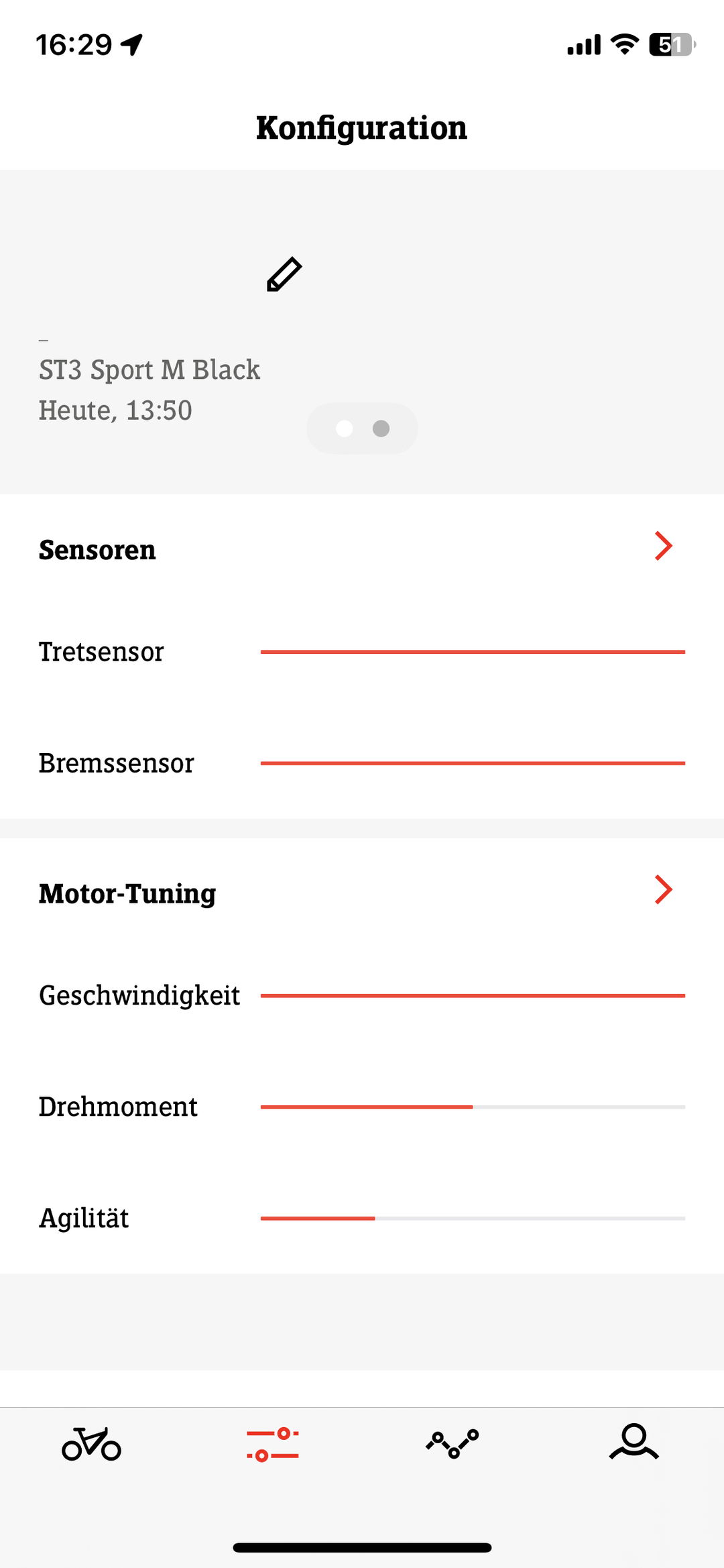Sensors
There are several sensors in the Stromer, whereby only two, the pedal and brake sensor, affect the speed and motor control and can be influenced in their effect. Only one of the two, the TMM sensor in the right-hand dropout, is also physically present.
Pedal sensor
The pedal sensor - also known as the TMM sensor, torque sensor or force sensor - measures the force exerted on the chain/belt by pedaling. It is proportional to the torque on the bottom bracket. The sensor translates this into a voltage value which the Omni evaluates. The setting of the slider determines the relationship between the rider's power and the motor assistance.
Brake sensor
In each brake lever there is a reed switch (switch that reacts to a magnet) which interrupts the assistance when the brake levers are actuated and activates the motor brake (recuperation). Only then is the hydraulic brake activated, which presses the brake pads against the brake disk. There is also a division of the effect between the left and right brake lever. About 1/3 of the set total effect is applied on the left and 2/3 on the right. The ratio cannot be changed.
With the Firmware update SUI FW 4.5.0.3 dated 05.03.2025, recuperation is additionally boosted when both brake levers are actuated. This allows recuperation to be controlled even better.
Designations
Unfortunately, the names of the 'Sensors' in the 'Omni' and the 'Omni App' are different. The 'Sensor' icon in the 'Omni' becomes 'torque sensor' in the 'Omni App' and under Motor tuning (level 2 - 'Custom') it is then called 'Torque'.
Omni App

Omni (see Omni diagram)
- Pedal sensor: Omni > Sensor > rot. sens. - 'Sensitivity'
- Brake sensor: Omni > Menu > Bike > Brakes - 'Strength'
Speed levels
The 'voltage' coming from the TMM sensor is processed by the Stromer in the Omni and, together with the speed setting and the selected pedal sensor value, is converted into support for the hub motor.
The Stromer standard models have three speed levels, which can be selected using the [+] / [-] buttons on the handlebars. The top-of-the-range ST5 and ST7 models have the additional 'S' sport mode. The Speed levels 1 + 3 have a Fixed support.
Engine tuning
While nothing can be changed in level 1 / 3 and S, the Speed level 2 in the Omni app under Configuration > Motor tuning Four predefined profiles:
- Standard
- Snow
- City
- Tour
and a profile 'Own' on. The following 'Motor tuning' parameters can be set here:
- Speed
- Torque
- Agility

Speed:
The achievable top speed can be adjusted under Speed. It is not shown numerically, but if the slider is on the far right, this means the maximum achievable 45 km/h.
Torque:
The torque setting indicates the force with which the Stromer accelerates. A higher value means faster acceleration and reaching a higher speed.
Agility:
Agility refers to the sensitivity or response behavior / reaction time of the assistance. Greater agility means that the assistance kicks in more quickly as soon as you start pedaling.